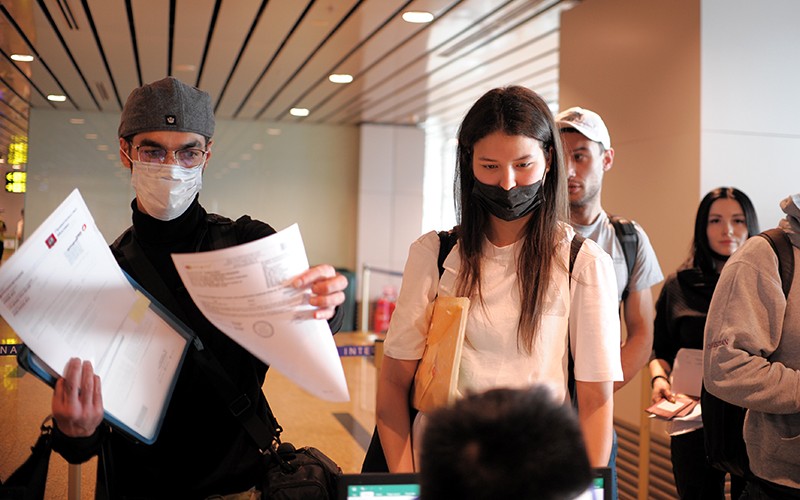
Since the opening of tourism, the situation of welcoming international visitors of travel companies in Vietnam is not very positive.
“My company has been open for more than a month, but has only received 5 guests from Italy. There are 10 delegations of visitors who inquired, but when hearing about their visa policy, they gave up,” said Ngo Thach Lam, director of Amo Travel – a company specializing in international arrivals.
That’s the reality other inbound companies are facing right now. Despite opening the door, they still just sit and count the number of international visitors dripping.
Visa policy is still difficult
According to a reporter’s survey, the only thing that makes international travel agencies uncomfortable at the moment is the visa policy. Although it has been mentioned many times since opening to tourism on March 15, Vietnam has not made any move to further relax the visa policy.
Specifically, for 3 years from March 15, citizens of 13 countries will be exempted from visa when coming to Vietnam, regardless of passport type and entry purpose.
Citizens of countries exempt from visas include Germany, France, Italy, Spain, United Kingdom of Great Britain and Northern Ireland, Russia, Japan, Korea, Denmark, Sweden, Norway, Finland, Belarus . However, the visa exemption period is only 15 days.
Many travel companies said that after opening, countries like Thailand, Vietnam, Malaysia or Singapore all started from zero. The previous advantages were not really significant. The problem is that countries must grasp the most powerful weapon to attract tourists – friendly visa policy.
Most countries in the region apply a visa-free policy for international visitors entering from 30 days. For example, Thailand exempts up to 60 days with a tourist visa, allowing single or multiple entry (can be extended for an additional 30 days). Or Indonesia is 30 days (for single entry) and can be extended before it expires. In general, compared with other competitive tourism countries in the region, Vietnam’s visa policy is considered unfriendly when it is only 15-50% compared to theirs.
Can compete with Thailand?
In 2019, the tourism industry contributed up to 9.2% of the country’s GDP. However, many people working in tourism commented that Vietnam does not really take this industry seriously. Although the tourism industry is said to be a spearhead economic sector, the actual actions are not proportionate.
According to Mr. Pham Ha, CEO of Lux Group, Vietnam’s tourism opening is generally good and agile. However, practical actions make it difficult to welcome international guests. Mr. Ha said that many of the company’s customers complained that it was difficult to find information about Vietnam’s tourism, and the promotion was not strong. From there, leading to tourists also consider when choosing Vietnam or other countries in the region.
“Over the past 10 years, Thailand has become the top destination for international tourists. They do a great job, but after the pandemic, tourists want new destinations. Thailand is too old. Vietnam should take the opportunity to position the national brand and become a leading destination in the region. I think if we don’t change soon, we will fall into competition with ourselves,” said Mr. Ha.
A representative of Lux Group commented that there are 4 bottlenecks that Vietnam needs to remove at this time, including policies, quality of human resources, attractive tourism products and effective tourism promotion.
If these problems can be solved, Vietnam can completely compete with other countries in the region. On the other hand, Vietnam also needs good policies to support the tourism industry like Thailand. In the past, tours to Thailand were very cheap because of subsidized policies.
Regarding the comparison with Thailand, Amo Travel representative acknowledged that Vietnam’s potential is huge. Landscape, culture, history we all have enough. Beautiful destination, good infrastructure, smooth domestic movement.
@ Zing News
